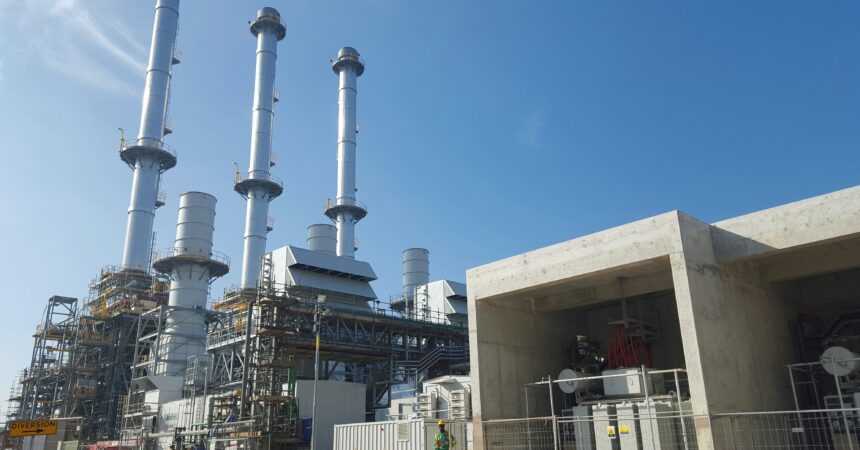Malta still heavily relied on purchasing ‘credits’ from other more successful EU countries to reach its 2020 climate and emissions targets, according to a new special report by the European Court of Auditors.
The report examined countries’ performances against 2020 targets and their progress towards 2030, by when the EU has pledged to reduce greenhouse gas emissions to at least 55% of 1990 levels.
But Malta – along with just Ireland and Germany – failed to reach their targets and had to resort to purchasing greenhouse gas emission allocations from other EU states that not only met but exceeded their targets.
According to the new ECA special report, the three countries bought 17 million tonnes worth of greenhouse gas allocations from other member states that had overachieved their targets between 2013 and 2020.
The report did not specify how many tonnes worth of allocations Malta purchased to compensate for its shortfall but it estimated that the total spend by the three countries amounted to just under €800 million.
It can, however, be safely assumed that Malta, which has always refused to divulge how much it is spending on purchasing other countries’ credits, has spent millions of euros on the book-balancing exercise.
Member states determine the price of transferred emission allocations based on bilateral agreements, which are kept confidential.
The ECA did attempt to put a price tag on the purchase of emission credits by applying the Emission Trading System’s average price of €39.9 per tonne of CO2 in 2021, which places the value of such purchases at €790 million.
The EU’s Effort-Sharing Decision requires the Commission to adopt measures to increase the transparency of such transfers.
The Commission receives information from member states on the quantity of emissions transferred and the price of the individual transactions between member states. But it only publishes information on the quantities transferred and not on their prices.
“The lack of transparency on the price paid by member states makes it difficult for citizens and stakeholders to determine whether flexibilities achieve their intended goal of improving the overall cost-effectiveness of achieving the targets.”
Under new regulations, the Commission will have to publish the price range of transfers as of this year, but not of individual transfers.
One of the five member states interviewed by the ECA, Sweden, explained that it did not sell its emissions over-achievement to other member states, “to improve the environmental integrity of the EU system”.
The audit found that member states collectively achieved 2020 targets but only with the help of external factors such as the effect of Covid-19 restrictions and the 2009 financial crash, both of which temporarily lowered energy consumption.
The auditors found “little indication” that current actions put forward will be sufficient to reduce emissions by 55% as targeted by the end of this decade.
The audit identified a lack of transparency in how member states reached binding national targets through the ‘flexible’ arrangements.
“We need more transparency on the performance of the EU and its member states on their climate and energy actions,” said Joëlle Elvinger, the report’s lead auditor.
“We also believe that all greenhouse gas emissions caused by the EU should be accounted for, including those stemming from trade and international aviation and shipping,” she said.
Malta’s shipping sector, as has been shown and documented time and again, is a major source of emissions in Malta but is not accounted for in greenhouse gas emissions.
On a global level, shipping accounts for 3.6 of total greenhouse gas emissions, the ECA observed. Malta’s percentage would naturally be higher given its shipping and cruise liner industries.













I think we ALL know that that is blatantly obvious giving the huge traffic jams rampant construction and the methane produced at the trough from the oinkers which is substantial and getting worse every day
Why does the EU Commission permit the PA to issue building permits that shadow PV installations that received EU subsidies ?
It’s incredible how the IDIOTS in Brussels don’t have the mental capacity to understand a Redutio and Absurdum situation.
The EU Commission is penalizing Malta in order to obey just one EU law the Freedom of Movement of Property law.
This Emission Credits declaration is strange.
Generating Electricity from LNG instead of HFO / Diesel and the amount of energy from PV that Malta is producing should have made a huge difference to Malta’s emission deficits.
Is the breakdown of Malta’s Emission Credit available from some EU link?
It is obvious that the very large increase in traffic has made its hit.
Who is pocketing the Emission Credits generated by the Electrogas LNG generation?
Electrogas or EneMalta? Anybody knows?
Look people let’s be honest here. We all know that eco targets are total bullshit and always were. What we actually need are government that calls out the BS rather than virtue signaling AHoes that try to gas light shame us for zero value to the good citizens